Presidents Day
In honor of the Presidents Day holiday, this is our last issue until Tuesday, February 19. See you then!
In honor of the Presidents Day holiday, this is our last issue until Tuesday, February 19. See you then!
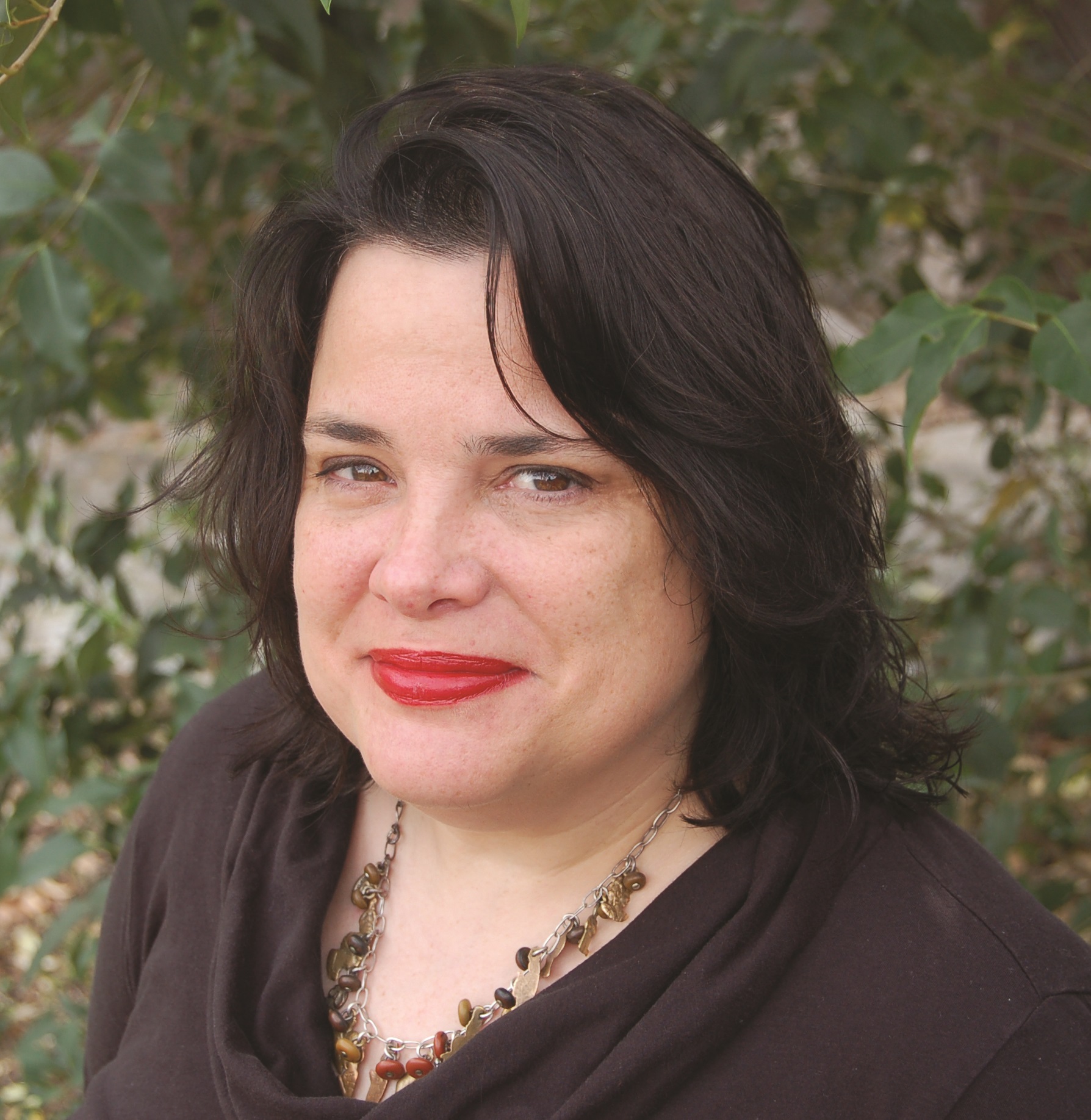 "I was really raised by independent bookstores. My brother, Harry, and I would take the bus into Harvard Square, where there were so many, though my favorites was Wordsworth, which had these benches upon which a child could sit and read all day. We also hit the Harvard Bookstore, and the Million Year Picnic, a fantastic comic book store, both of which are still there.
"I was really raised by independent bookstores. My brother, Harry, and I would take the bus into Harvard Square, where there were so many, though my favorites was Wordsworth, which had these benches upon which a child could sit and read all day. We also hit the Harvard Bookstore, and the Million Year Picnic, a fantastic comic book store, both of which are still there.
"And one of the luckiest things that ever happened to me is that in grad school I won $500 worth of books from Prairie Lights in Iowa City, which was an unfathomable amount in 1990, and I can still remember a lot of the books that Paul Ingram loaded into my arms: Friend of My Youth, The Mambo Kings Play Songs of Love, Deadwood, Paris Trout, Memories of a Catholic Girlhood, Geek Love. To read Geek Love for the first time! I knew that if I just asked for the books I would love, he would find them for me. Independent bookstores have done a lot for me as a writer, too--I have depended on them all my writing life--but it's my reading life that I think of instantly. (And I cannot wait to come back to Parnassus. I have always wanted to be friends with the proprietor of a bookstore.)"
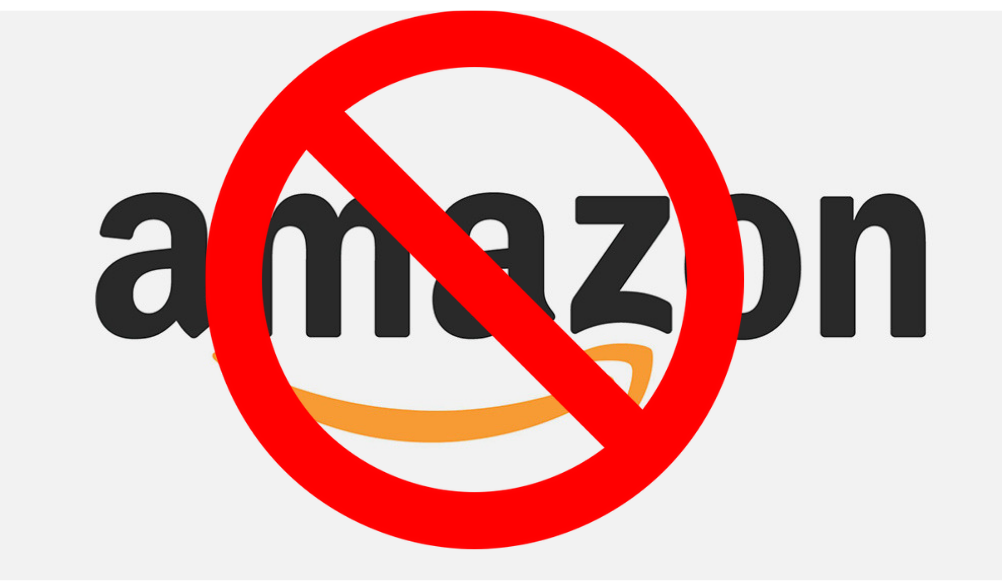 Three months after announcing it would open half of its HQ2 project in Long Island City in New York City, Amazon has backed out of the deal, blaming "a number of state and local politicians [who] have made it clear that they oppose our presence and will not work with us to build the type of relationships that are required to go forward with the project."
Three months after announcing it would open half of its HQ2 project in Long Island City in New York City, Amazon has backed out of the deal, blaming "a number of state and local politicians [who] have made it clear that they oppose our presence and will not work with us to build the type of relationships that are required to go forward with the project."
In its announcement, Amazon added that it does not "intend to reopen the HQ2 search at this time." The company "will proceed as planned" with the other half of its HQ2 project, in Arlington, Va., as well as with its 5,000-person facility in Nashville, Tenn., "and we will continue to hire and grow across our 17 corporate offices and tech hubs in the U.S. and Canada." The company added that it currently has more than 5,000 employees in Brooklyn, Manhattan, and Staten Island, and "we plan to continue growing these teams."
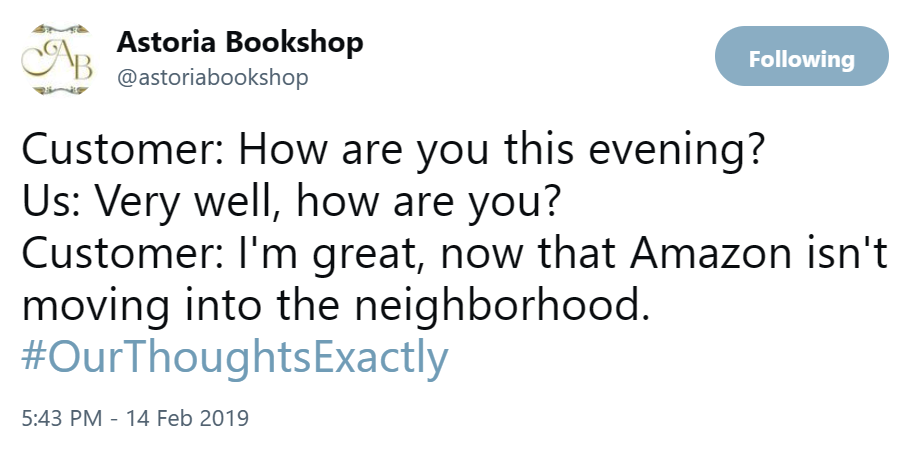
For Amazon, a possible turning point was the appointment two weeks ago of Michael Gianaris--a state senator opposed to the deal whose district includes Long Island City--to an obscure state board, the Public Authorities Control Board, any one of whose members might kill the Amazon deal.
For the opponents, a key turning point was at a New York City Council hearing two weeks ago when Speaker Corey Johnson asked Amazon's v-p of public policy Brian Huseman if the notoriously anti-union company would agree to be neutral if any of its workers in New York City, a pro-union town, wanted to unionize. He responded: "No, we would not agree to that."
To try to change public opinion, Amazon had hired lobbyists and a public relations firm and proposed a variety of programs that included workforce training and computer science classes for New York City schoolchildren. Its decision to disengage was made especially easy since it had signed no leases or bought property in Long Island City, and the state and city incentives hadn't been approved yet.
Reactions from politicians and others to Amazon's decision not to open half of HQ2 in New York City varied, but was mostly enthusiastic. Still, Governor Andrew Cuomo, who worked with Mayor Bill de Blasio to secure the deal, blamed Democrats in the State Senate: "A small group of politicians put their own narrow political interests above their community--which poll after poll showed overwhelmingly supported bringing Amazon to Long Island City--the state's economic future and the best interests of the people of this state."
Mayor de Blasio took a different tack, saying, "You have to be tough to make it in New York City. We gave Amazon the opportunity to be a good neighbor and do business in the greatest city in the world. Instead of working with the community, Amazon threw away that opportunity."
Many local politicians ripped into Amazon. State Senator Gianaris said, "Like a petulant child, Amazon insists on getting its way or takes its ball and leaves. The only thing that happened here is that a community that was going to be profoundly affected by their presence started asking questions."
City Councilman Jimmy Van Bramer, who represents Long Island City, called Amazon's decision "a victory against unchecked corporate welfare."
Congresswoman Alexandria Ocasio-Cortez, whose district is close to Long Island City, tweeted: "Anything is possible: today was the day a group of dedicated, everyday New Yorkers & their neighbors defeated Amazon's corporate greed, its worker exploitation, and the power of the richest man in the world."
George Miranda, president of Teamsters Joint Council 16, said, "New Yorkers made it clear that Amazon wasn't welcome in our city if it would not respect our workers and our communities. Apparently, the company decided that was too much to ask. We are committed to fighting for the rights of workers throughout the Amazon supply chain and supporting their demand for a voice on the job."
Kathryn S. Wylde, CEO of the Partnership for New York City, a business group, said: "How can anyone be surprised? We competed successfully, made a deal and spent the last three months trashing our new partner. The reception Amazon received sent a terrible message to the job creators of the city and the world."
Not surprisingly, New York City indie booksellers were happy. Jessica Stockton Bagnulo, co-owner of Greenlight Bookstores in Brooklyn, told ABC News: "It might seem as though bookstores in particular have the most to celebrate about Amazon's retreat from Queens, but the victory is larger than that: it belongs to advocates for workers, immigrants, residents, and small businesses throughout our city.
"I think it's important to realize that it is possible to say 'no' to even the largest economic players. I hope this is a clear message to the leadership of our city and our state about what matters to New Yorkers: sustainable jobs, affordable housing and our city's unique culture that can never be replaced or replicated online."
McNally Jackson, which has stores in Manhattan and Brooklyn, tweeted: "Na na na na/ Na na na na/ HEY he-y/ GOODBYE."
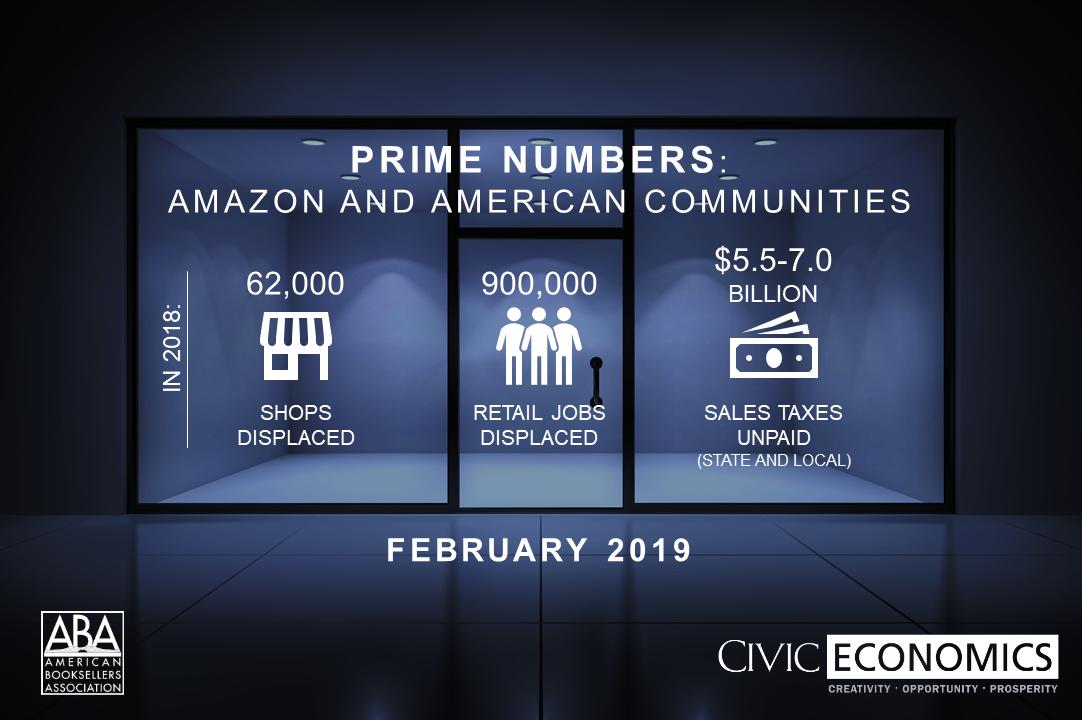
According to the study, Amazon and its third-party vendors sold some $189 billion worth of goods in 2018 alone, and those sales accounted for 540 million square feet of displaced retail space, 900,000 displaced retail jobs and $5.5-$7 billion in uncollected sales tax. The study also estimates that between 2014 and 2018, Amazon's online sales could have resulted in as much as $22.5 billion in uncollected sales tax.
The study notes that even though Amazon finally began collecting and remitting sales tax in all states that collect sales tax back in 2017, it collects taxes on third-party Marketplace sales only in eight states, and Amazon's Marketplace accounts for nearly two-thirds of its retail business.
"We believe that this extensive study by Civic Economics provides an essential resource to both policymakers and citizens as they work to understand and respond to the ongoing and relentless growth of Amazon's online sales," ABA senior strategy officer Dan Cullen told Bookselling This Week. "We hope that this detailed, state-by-state model of Amazon's negative economic impact on Main Streets, overall employment, and tax revenues will help inform a necessary national dialogue, which includes the growing debate regarding massive subsidies to a multi-billion-dollar global corporation and the true cost of Amazon's proliferation into more and more facets of our lives."
The study also provides some insights into the benefits that locally owned, independent businesses have on communities. For independent bookstores in particular, around 28% of all revenue immediately recirculates in the local economy. Amazon, meanwhile, recirculates only about 4% of its revenue locally.
---
In related news, the Institute on Taxation and Economic Policy has found that Amazon won't pay any federal income tax for the second year in a row, even though profits doubled to $11.2 billion in 2018. Moreover, the company is getting a 2018 federal income tax rebate of $129 million, which "works out to a tax rate of negative 1%."
The Institute noted that "the fine print of Amazon's income tax disclosure shows that this achievement is partly due to various unspecified 'tax credits' as well as a tax break for executive stock options."
Prospective bookstore owner Lindsay Cotton has been approved to start building a bookstore in Grosse Pointe Farms, Mich., the Grosse Pointe News reported.
Cotton will tear down an existing structure in downtown Grosse Pointe Farms in order to build a new two-story building. According to William Baldner, Cotton's architect, the building's first floor will have bookstore space along with a coffee bar, while the second floor will have bookstore space and a penthouse with access to a rooftop terrace. The building will be constructed with brick and limestone, and Cotton plans to sell wine in addition to books and coffee.
Cotton and her architect hope to start construction in the spring and expect the project to take around eight to nine months. The name of the bookstore has not yet been revealed.
Still North Books & Bar, which will open this fall in part of the space formerly occupied by the old Dartmouth Bookstore, Hanover, N.H., has launched an IndieGoGo campaign to raise $75,000 to purchase inventory.
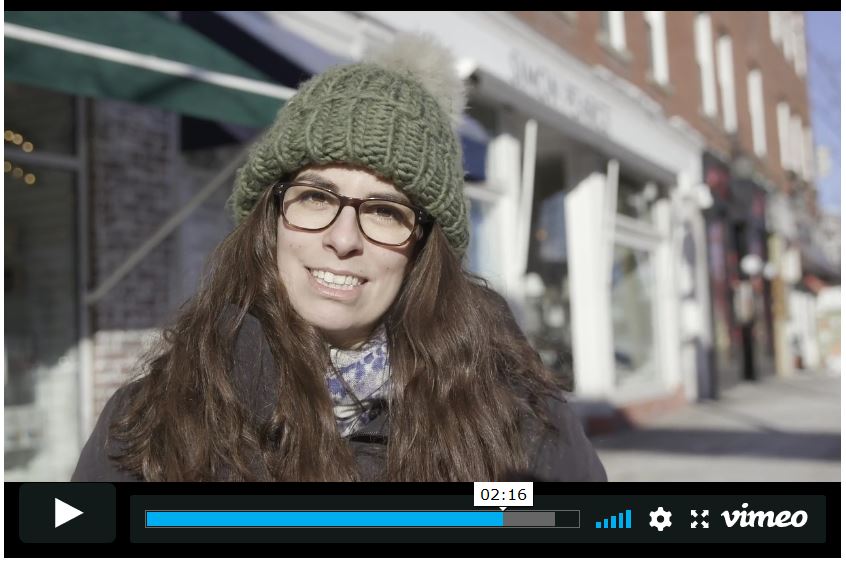
As noted last week, Levy is a Dartmouth alumna who was events coordinator at Denver's BookBar, which she credits as inspiring Still North, and also worked in marketing at Houghton Mifflin Harcourt.
With 2,700 square feet of space, Still North will focus on "literary fiction, narrative nonfiction, indie presses, local and alumni authors, book club picks, poetry, outdoor reference and guides, cookbooks, and theory" and serve wine, craft beer, coffee and food. "We don't just want you to buy your books here; we want you to stay and enjoy them, maybe even make a friend or find some community, and the physical space will reflect that," Levy wrote. "We look forward to welcoming you for our community events, including readings, signings, book clubs, story times, trivia and game nights, and more."
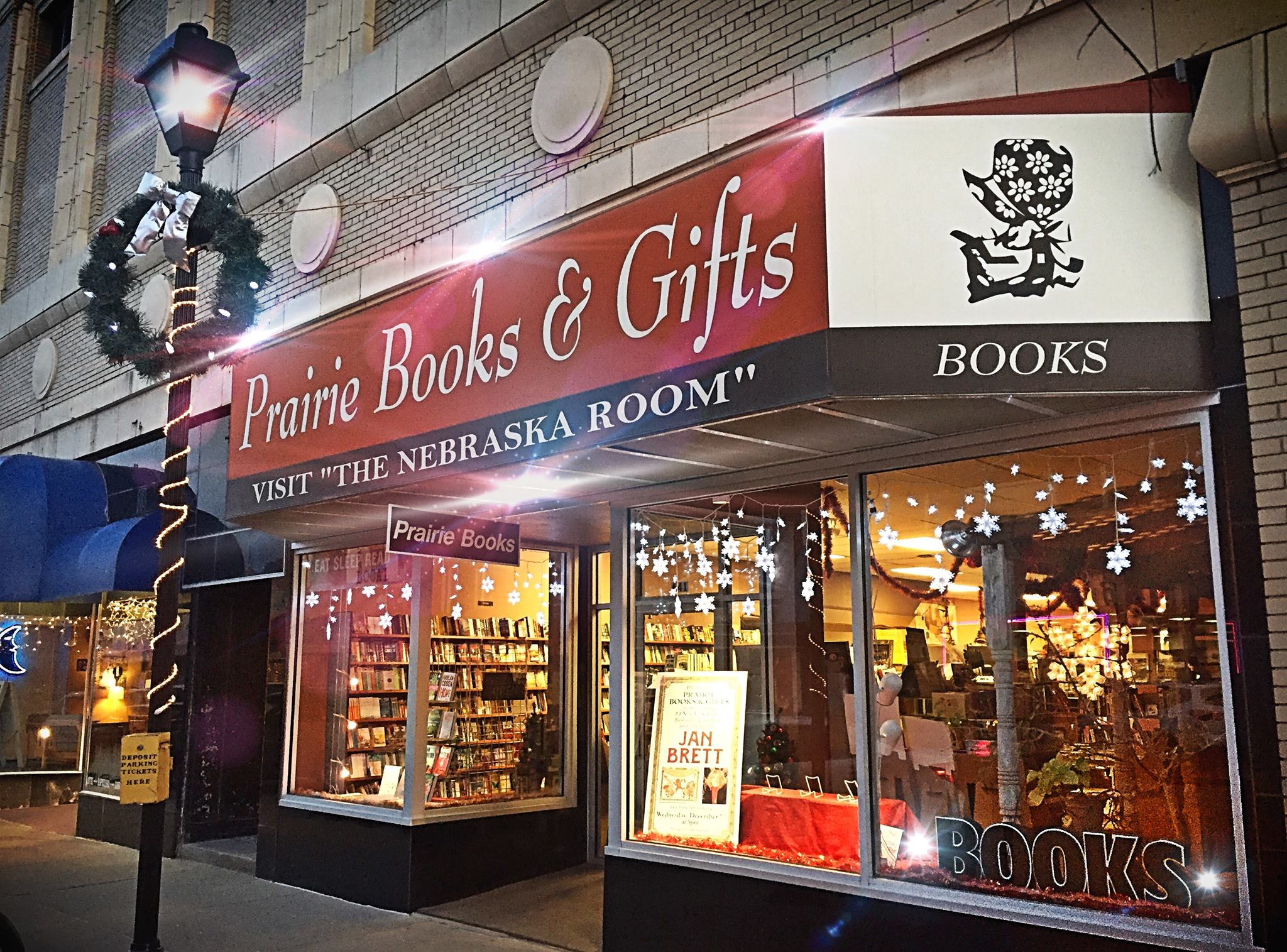 Prairie Books & Gifts in Hastings, Neb., will be closing after 43 years in business. In a Facebook post Monday, owner Jane Tushaus wrote on behalf of her family and staff: "Attention Hastings, loyal customers, and family and friends near and far…. It is with heavy hearts that we announce the closing of our family’s legacy and pride and joy, Prairie Books & Gifts. It has been the most incredible 43 years filled with precious memories, love, loss, friendships and hardships, but most of all, pure happiness selling books to all of you. We truly thank you for that opportunity."
Prairie Books & Gifts in Hastings, Neb., will be closing after 43 years in business. In a Facebook post Monday, owner Jane Tushaus wrote on behalf of her family and staff: "Attention Hastings, loyal customers, and family and friends near and far…. It is with heavy hearts that we announce the closing of our family’s legacy and pride and joy, Prairie Books & Gifts. It has been the most incredible 43 years filled with precious memories, love, loss, friendships and hardships, but most of all, pure happiness selling books to all of you. We truly thank you for that opportunity."
Customers were invited to "come in and join us over the next several weeks to share with us your favorite memories and experiences of our bookstore. We would love to see and hear from each and every one of you.... But do not despair, this is not the end of our story, merely the ending of another chapter and we look forward to a future where independent bookstores still thrive and succeed. To be continued...."
Heidi Toffler, "a researcher and editor who for decades served an essential though anonymous collaborative role alongside her celebrated husband, Alvin Toffler, in producing global bestselling books about the consequences of rapid change," died February 6, the New York Times reported. She was 89. She spent years "ignoring appeals from Mr. Toffler and her friends to take credit for her work publicly."
Their first book, Future Shock (1970), sold in the millions, was translated into dozens of languages and brought Alvin Toffler, who died in 2016, international fame. The Times noted that Heidi Toffler's "importance to the couple's book-writing enterprise emerged gradually." Future Shock was dedicated to her, their daughter and his parents; The Third Wave to her "professionalism as an editor" that was "reflected on every page"; and in the preface to Power Shift: Knowledge, Wealth, and Violence at the Edge of the 21st Century (1990), she was identified as co-author.
"I don't know where her brain ends and mine begins," Alvin Toffler told the New York Times in 2006. "She brings a kind of skepticism that saved me many times from saying foolish things.... She is very smart. I write. But she's the house critic who understands the ideas and how they should be structured."
In 1993, both of their names finally appeared together on War and Anti-War: Survival at the Dawn of the 21st Century. She was subsequently credited as the co-author of Creating a New Civilization: The Politics of the Third Wave (1995) and Revolutionary Wealth: How It Will Be Created and How It Will Change Our Lives (2006).
"The idea of having a byline didn't really do anything for me,” she told the Times in 1993. “But each set of acknowledgments in each book was more effusive and fulsome. The feminist movement put a lot of pressure on me and said I was a very poor role model.
"And then men would come up and say, 'We just wanted to tell you we think you have such a wonderful husband for giving you all that credit'--implying that I wasn't doing any work. That finally pushed me over the edge."
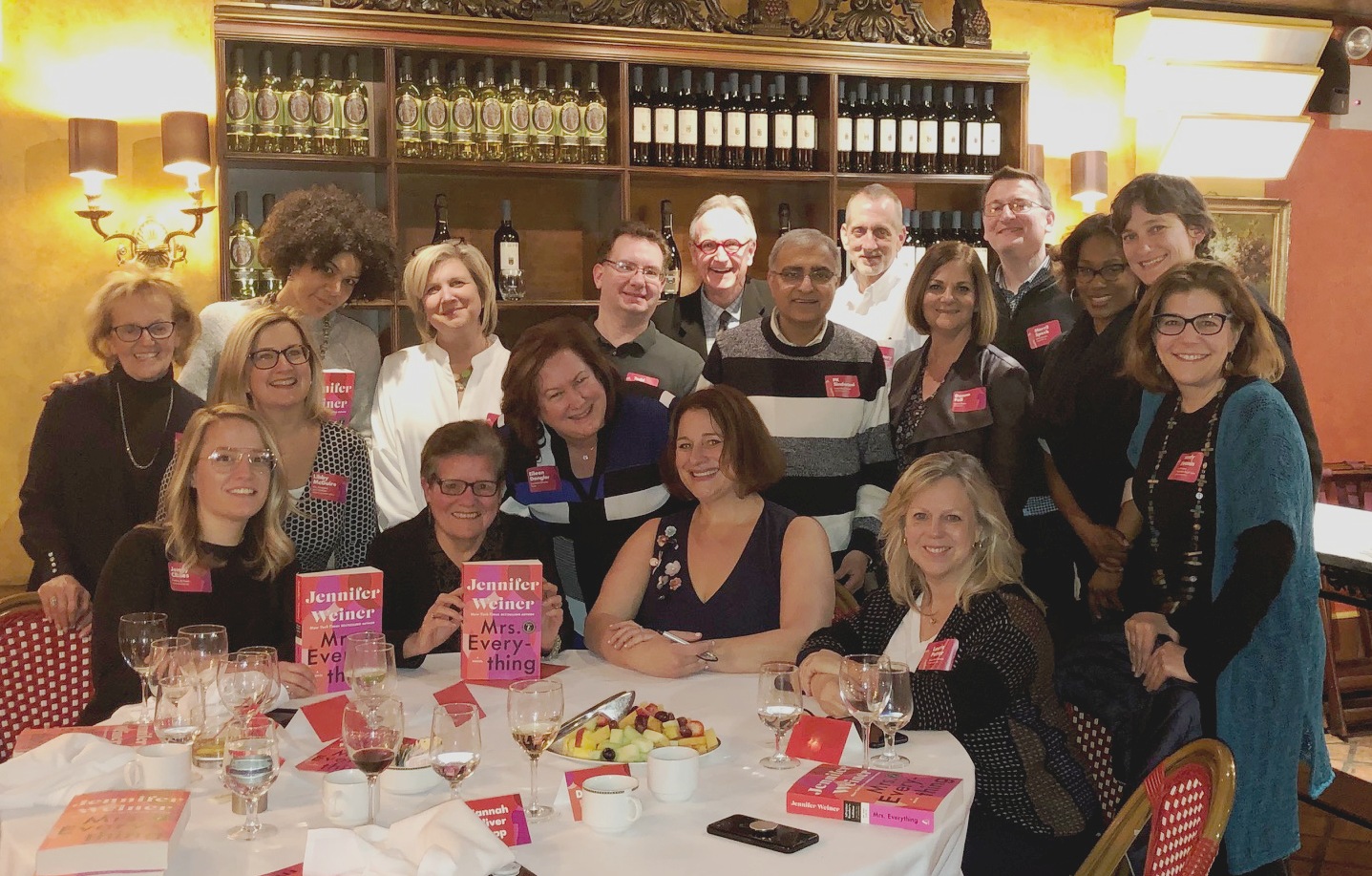 The New Atlantic Independent Booksellers Association board and several member booksellers joined Atria Books publisher Libby McGuire to celebrate Jennifer Weiner and her upcoming novel, Mrs. Everything (June 11), at an intimate dinner earlier this week. Photo: Wendy Sheanin.
The New Atlantic Independent Booksellers Association board and several member booksellers joined Atria Books publisher Libby McGuire to celebrate Jennifer Weiner and her upcoming novel, Mrs. Everything (June 11), at an intimate dinner earlier this week. Photo: Wendy Sheanin.
Congratulations to Gulf of Maine Books, Brunswick, Maine, which is celebrating its 40th anniversary this month. The Forecaster reported that co-owners Gary Lawless and Beth Leonard, who have been together for close to 43 years, met in the 1970s at Bookland, where Leonard would look at books that Lawless was interested in, too.
"When you see what books people are interested in, you can start conversations, and begin friendships that last a long time," he said. "Even a more than 40-year marriage."
The bookstore will host a party February 23 to celebrate its birthday. "If you’re smart, you grow at a smaller rate year after year and you’re supported by your community, you can do OK and we certainly have," Lawless said.
Leonard added: "We want to keep giving our customers a reason to celebrate with us, and some of them have been shopping here since we opened.... The Brunswick community has been amazing to us and has supported us the whole way."
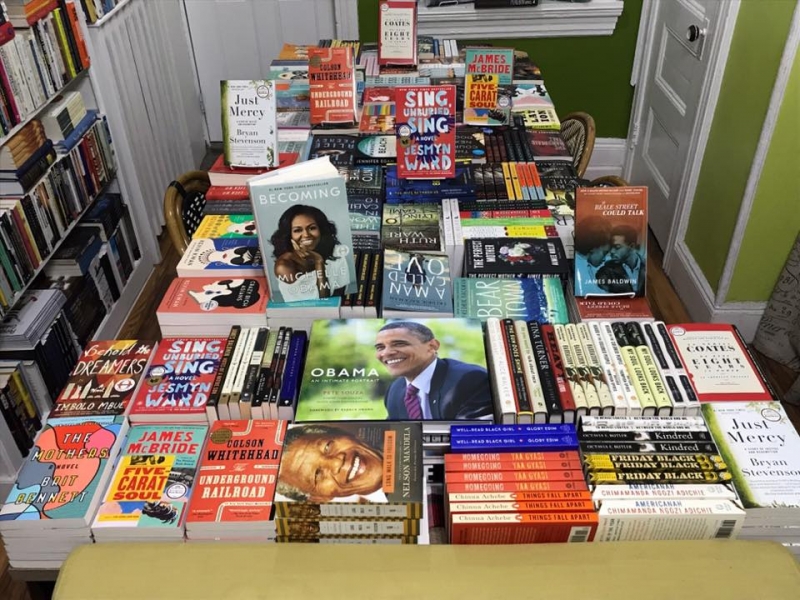 |
|
| At The Little Boho Bookshop, Bayonne, N.J. | |
"Indie bookstores around the country are creating engaging and educational book displays and staging and promoting events in honor of Black History Month," Bookselling This Week reported in showcasing a gallery of photos posted by booksellers on social media.
Posted on Facebook last night by Print: A Bookstore in Portland, Maine: "Goodnight, bookstore."
 Spearhead: An American Tank Gunner, His Enemy, and a Collision of Lives in World War II by Adam Makos (Ballantine).
Spearhead: An American Tank Gunner, His Enemy, and a Collision of Lives in World War II by Adam Makos (Ballantine).
A new trailer has been released for Fox Searchlight's film Tolkien, "the true story of the magical world's one-of-a-kind creator," Deadline reported. Nicholas Hoult stars as author J.R.R. Tolkien, "born in South Africa, raised in England and elevated to immortality on millions of bookshelves around the world with the publications of The Hobbit and the Lord of the Rings trilogy."
Directed by Dome Karukoski from a script by David Gleeson and Stephen Beresford, the movie follows the author "through a hardscrabble childhood, into the battlefields of World War I and through the corridors of academia where he studied linguistics but eventually became a historian of the unreal," Deadline wrote.
The cast also includes Lily Collins, Colm Meaney, Anthony Boyle, Patrick Gibson, Tom Glynn-Carney, Craig Roberts, Laura Donnelly, Genevieve O'Reilly, Pam Ferris and Derek Jacobi. Fox Searchlight will release Tolkien to theaters on May 10.
Memento Park by Mark Sarvas (Farrar, Straus and Giroux) has won the Association of Jewish Libraries' Jewish Fiction Award, which includes a $1,000 cash prize. The association said that the protagonist in the novel "becomes aware of a valuable painting believed to have been stolen from his family in World War II. In order to recover the mysterious work, he must reconnect with his father, his family history, and his own Judaism."
Yermiyahu Ahron Taub, chairperson of the award committee, added: "Dramatically paced and laced with mordant wit, Mark Sarvas has fashioned a meditation on art, family, faith, and Jewish history in the form of a suspenseful intellectual thriller."
The association also named two honor books:
The Cloister by James Carroll (Nan Talese). "The timeless love story of the discredited medieval French scholar Peter Abelard and his intellectual paramour Héloïse, and its impact on a priest and a Holocaust survivor in post-World War II Manhattan."
The Fourth Corner of the World by Scott Nadelson (Engine Books). "The characters in [this] short story collection... abandon their lands of origin, sever their roots, and distance themselves from the people they once were."
---
A longlist has been released for the $50,000 Simpson Family Literary Prize, recognizing "an author of fiction in the middle of a burgeoning career." The shortlist will be announced in early March and a winner named in early April. The prize is administered by the Simpson Project, which is a collaboration of the Lafayette Library and Learning Center Foundation and the University of California, Berkeley, English Department. Check out the complete longlist here.
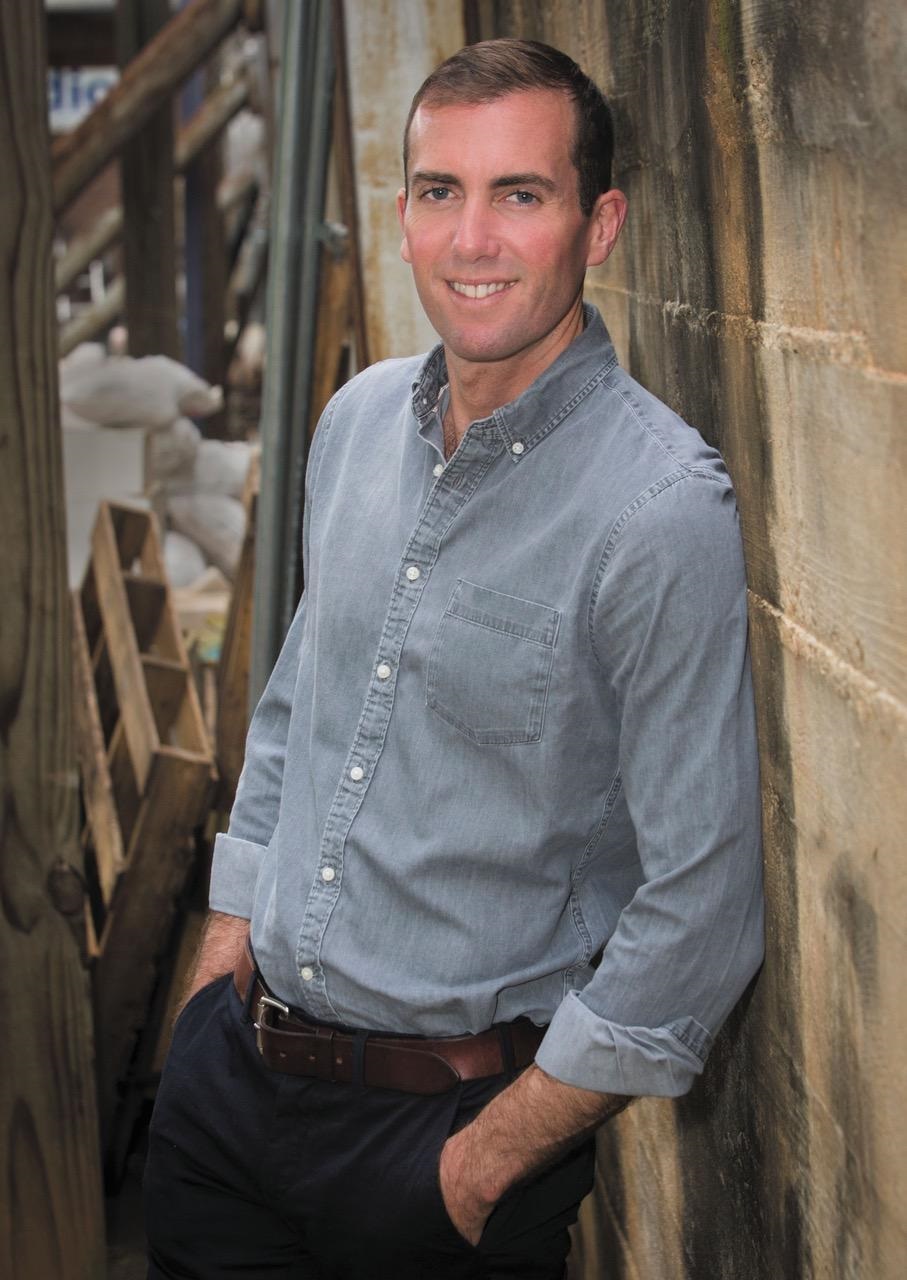 |
|
| photo: Lorikay Stone Photography | |
Snowden Wright is the author of the novels Play Pretty Blues (Engine Books, 2013) and American Pop (Morrow, February 5, 2018). He has written for the Atlantic, Salon, Esquire and the New York Daily News, among other publications. A former Stone Court Writer-in-Residence, Wright lives in Atlanta, Ga.
On your nightstand now:
Kate Atkinson's Transcription and Kiese Laymon's Heavy and Lauren Wilkinson's American Spy. I've finished the first two and am working my way through the third. The combo wasn't intentional, but American Spy is almost an amalgamation of Transcription and Heavy, the former a jaunty British spy novel set shortly before World War II, the latter an elegant, febrile meditation on the African American experience. American Spy follows a young black woman who's part of a secret task force during the Cold War. I'm only a third of the way into the novel, but so far, I'm fascinated with how Wilkinson interweaves, literarily and metaphorically, race and espionage.
Favorite book when you were a child:
How about favorite book series? When I was a child, my parents, perhaps foolishly, put no restrictions on what I read or, for that matter, watched. My favorite movie at age three was the very R-rated 48 Hours. So they had nary a problem with my adoration of Anne Rice's The Vampire Chronicles. She was the first author signing at a bookstore I ever attended. I remember standing in line at Lemuria Books in Jackson, Miss., a stack of novels--Interview with the Vampire, The Vampire Lestat, The Queen of the Damned and The Tale of the Body Thief--clutched in my 11-year-old arms, when a very large, imposing, middle-aged gentlemen tapped me on the shoulder. "Excuse me, little boy," he said (yes, he addressed me as "little boy"). "Do your parents really let you read those books?"
"Yes, sir," I said. "My parents don't care what I read so long as I read. Do your parents really let you read them?"
Your top five authors:
Michael Chabon, my favorite living author. Edith Wharton, my favorite dead author. Ann Patchett, who makes it seem so damn effortless. Gabriel García Márquez, a magician, a genius, an impresario, an everything-and-then-some. Anne Sexton, because I love all my poet friends too much to not list one of their own here.
Book you've faked reading:
Proust's Remembrance of Things Past.
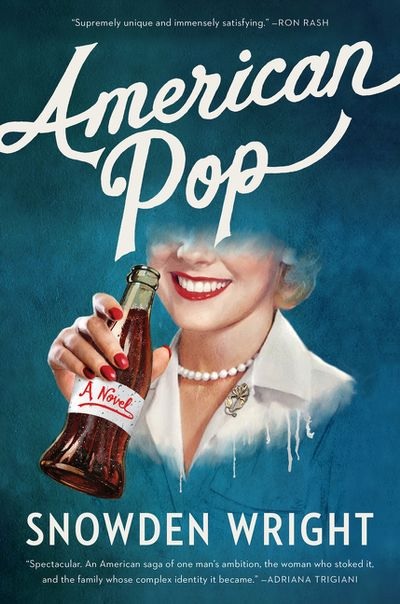 Book you're an evangelist for:
Book you're an evangelist for:
Matt Burgess's Uncle Janice is that rare hybrid, a literary crime novel, at once beautifully written and narratively propulsive. It concerns an NYPD officer named Janice (undercover narcs are known as "uncles") who copes with the absurd bureaucracy, racism and seedy corruption in the police department. Given that the novel was released shortly after the death of Eric Garner, not to mention the tragically countless other examples of police brutality over recent years, I was surprised it did not find a wide audience. It deserves one.
Book you've bought for the cover:
There's another reason to buy a book? Honestly, though, I love to buy duplicates of my favorite books if I come across an old edition with a gorgeous cover. Some recent finds: Richard Yates's Revolutionary Road, Lorrie Moore's Self-Help, Katherine Dunn's Geek Love, Amy Hempel's Reasons to Live, Carson McCullers's The Member of the Wedding, Susanna Moore's In the Cut and John Crowley's Little, Big. Of course, all of those novels are brilliant and should be read regardless of their covers. A flower may only be as good as its petals, as I've heard quipped, but hey, literature ain't the same as horticulture.
Book you hid from your parents:
Charlie and the Chocolate Factory. I had read most of Anne Rice, Michael Crichton and John Grisham by the time I discovered Roald Dahl. I didn't want my parents to think I was regressing into the type of child who read age-appropriate books.
Book that changed your life:
Proust's Remembrance of Things Past.
Favorite line from a book:
A bit more than one line, but here goes: "When I remember that summer, that dull, stupid, lovely, dire summer, it seems that in those days I ate my lunches, smelled another's skin, noticed a shade of yellow, even simply sat, with greater lust and hopefulness--and that I lusted with greater faith, hoped with greater abandon. The people I loved were celebrities, surrounded by rumor and fanfare; the places I sat with them, movie lots and monuments. No doubt all of this is not true remembrance but the ruinous work of nostalgia, which obliterates the past, and no doubt, as usual, I have exaggerated everything." --Michael Chabon's The Mysteries of Pittsburgh
Chabon is one of the finest sentence-crafters working today. He has dozens of gems I could have chosen. I love this one for reasons that should be clear in my response to a later question.
Five books you'll never part with:
Larry McMurtry's Lonesome Dove. It is perhaps the most entertaining novel ever written. Nancy Lemann's Lives of the Saints. It is perhaps the most hilarious and tragic Southern novel ever written. Shirley Hazzard's The Bay of Noon. Her follow-up, The Transit of Venus, also excellent, is considered her masterpiece, but I ride-or-die with this perfect little diamond of a novel. Toni Morrison's Song of Solomon. As with Hazzard, Morrison is better known for one of her follow-ups, Beloved, but this novel will forever remain tucked into a warm, cozy nook of my heart. E.L. Doctorow's Ragtime. It is perhaps the greatest historical novel ever written.
Book you most want to read again for the first time:
I feel obligated to consider three as one: Michael Chabon's The Mysteries of Pittsburgh, F. Scott Fitzgerald's The Great Gatsby and Philip Roth's Goodbye, Columbus. Each of these novels takes place over a single summer--Chabon has remarked on that season's perfect narrative structure, with June as act one, July as act two, and August as act three--and so I try to reread at least one of them every summer. They all beautifully depict how it feels to be young and deliciously alive during those three perfect months of the year.
Your top five favorite Southern novels:
I already mentioned Nancy Lemann's Lives of the Saints, so I'll skip that one here. In no particular order: 1) Eudora Welty's Delta Wedding, which explores the strange, fraught culture of its titular region, 2) Barry Hannah's Ray, which is as wild and uninhibited as the rumors about the man who wrote it, 3) Walker Percy's The Moviegoer, which proves that a quiet novel can roar, 4) Edward P. Jones's The Known World, perhaps the best book written this century, and 5) Donna Tartt's The Secret History, a Southern novel only because its author is from Mississippi, but come on; it's an atom bomb of a first novel.
Running Home: A Memoir by Katie Arnold (Random House, $27 hardcover, 384p., 9780425284650, March 12, 2019)
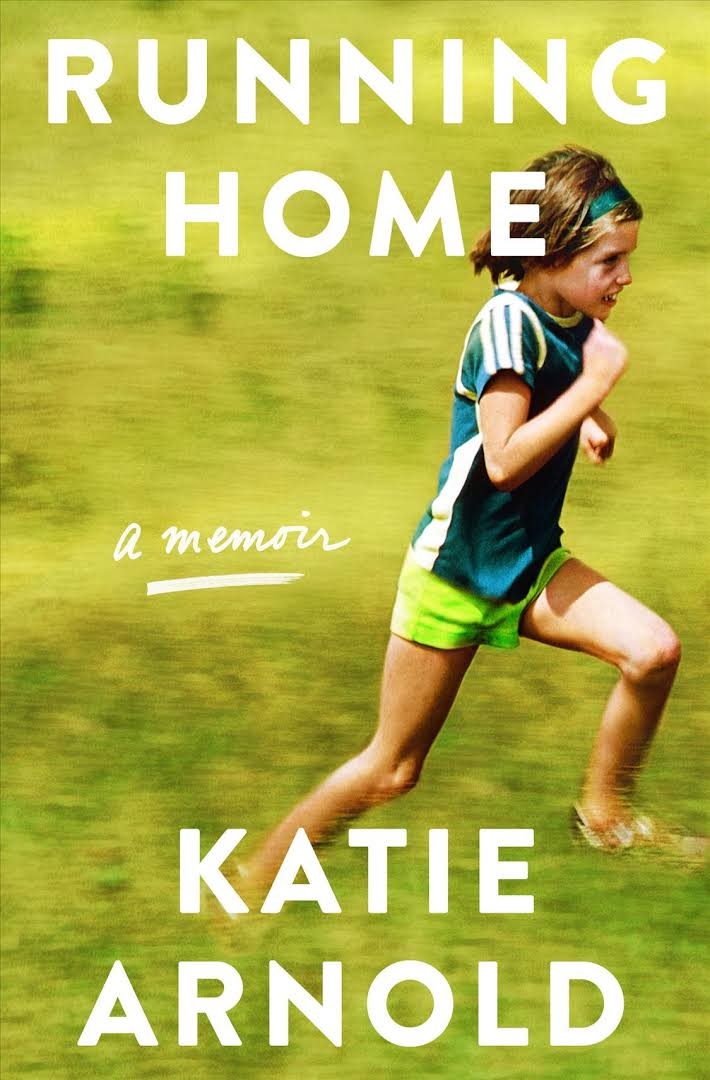 Running, for Katie Arnold, has long been a means of solace: a way to escape anxiety and heartbreak, or at least to muffle the chorus of fear. Since moving to Santa Fe, N.Mex., in her 20s, Arnold (a long-time editor and writer for Outside magazine) has run and hiked through the nearby mountains. When her father was diagnosed with cancer, Arnold navigated her wrenching grief the only way she knew how: by running miles and miles and miles.
Running, for Katie Arnold, has long been a means of solace: a way to escape anxiety and heartbreak, or at least to muffle the chorus of fear. Since moving to Santa Fe, N.Mex., in her 20s, Arnold (a long-time editor and writer for Outside magazine) has run and hiked through the nearby mountains. When her father was diagnosed with cancer, Arnold navigated her wrenching grief the only way she knew how: by running miles and miles and miles.
Arnold's memoir, Running Home, chronicles both her journey as a runner and the narrative of her close but complicated relationship with her dad, David. A National Geographic photographer with a restless soul, he left when Arnold was three, but remained a loving presence in her life, mostly through phone calls and summer visits. Arnold ran her first 10K at age seven, not on her own whim but his, and jumped into a frigid creek when he bet her she wouldn't. She explores her boundless craving for adventure, her need to push herself, as both something she inherited from him and as a way to make him proud.
As Arnold shuttles back and forth between Santa Fe and her father's home in Virginia, her book moves between childhood anecdotes and the story of growing into herself as a woman and a runner. As a college graduate finding her way in Santa Fe, she didn't run to compete; she simply tackled Atalaya Mountain, trying to outrun her homesickness and loneliness. Later, she came to love running as "a way of being awake in the world," a way to test her own limits amid nature's harsh beauty, a way to move toward being more fully alive.
Over hundreds of miles, Arnold delves deeply into the layers of her love for her dad: her drive to please him, her deep admiration of him, her fear that his leaving was her fault. She examines the stories she has always told herself about family and love, while navigating the increasing challenges of balancing motherhood, marriage, freelance writing and her passion for running. She becomes a marathoner, then an ultramarathoner, facing down her fears along with the blisters, injuries, sunburn and, ultimately, experiencing the pure joy of hours on the trail.
Blazingly honest and vulnerable, shot through with vivid imagery and interspersed with David Arnold's photographs, Running Home is a daughter's tribute to her father, a love letter to running and a powerful meditation on the stories we tell ourselves. --Katie Noah Gibson, blogger at Cakes, Tea and Dreams
Shelf Talker: Katie Arnold's incandescent memoir is a tribute to the father she adored and a love letter to running.
At a time when dialogue seems to be in danger of becoming a synonym for strident monologue, the Open Discussion Project, which provides "community-based spaces for discussion among people of opposing views--discussions that are intentionally political and not intended to convert," is seeking an alternative.
Sponsored by the National Coalition Against Censorship in partnership with ABA, the project was explored at Wi14 during a panel discussion featuring NCAC executive director Chris Finan and three booksellers who are currently participating in the pilot program: Sarah Goddin of Quail Ridge Books, Raleigh, N.C.; Bradley Graham of Politics and Prose Bookstore, Washington, D.C.; and Alana Haley of Schuler Books, Grand Rapids, Mich.
_Chris_Finan_Sarah_Goddin_Bradley_Graham_Alana_Haley_.jpg) |
|
| L.-r.: Chris Finan, Sarah Goddin, Bradley Graham, Alana Haley | |
"Democracy is built on conversation between people who disagree," Finan said. "It's what the image of the marketplace of ideas is all about. It's how ideas get weighed, pro and con. And it's just not taking place in the way that it used to."
ODP grew out of a conversation Finan and Goddin had at the 2017 Winter Institute about the potential for bookstore discussion groups to bring liberals and conservatives together. Three months later, Goddin surprised him with news that Quail Ridge had launched Bridging the Divide, which Finan said has since become "our lodestar, encouraging us to believe that this idea can work."
Pilot ODP reading groups have been launched in six locations across the U.S., assisted by the National Institute for Civil Discourse, which is providing discussion groups with professional mediators as facilitators. The other pilot stores are Anderson's Bookshop, Naperville, Ill.; Gibson's Bookstore, Concord, N.H.; and Vroman's Bookstore, Pasadena, Calif.
Noting that there was "definitely a lot of hunger for people to talk to each other" when Quail Ridge launched Bridging the Divide, Goddin recalled that "our greatest challenge was actually getting conservative and libertarian people with those ideologies to participate. I think there was a lot of sort of built-in mistrust that an independent bookstore would provide a space that they felt that their voices would be heard equally. And we continue to have that challenge, although we're doing much better now."
With the change to the ODP format, she has been able to find additional contacts to diversify the group. For the first meeting, "we had 55 people show up and we had a really good representation from all sides.... I'm very excited to be part of the new group because I think having the two trained facilitators will be something that'll make a big difference to us. It was very difficult for people who weren't trained in doing that to handle that kind of discussion. It's not easy. Sometimes things do get heated, sometimes people are too polite and you have to really draw them out. So I think it does take some effort to do that but it's been one of the most rewarding things we have done in the store since I've been there so I've been very happy to participate."
For Politics and Prose, Graham said the goal had been to shape a group "in a way that would have some kind of balance of liberals and conservatives." A survey helped them to "put together a group of about 33 people, 9 or 10 of whom we thought were conservative or leaning right." The first meeting, however, was marred by a snowstorm and only 19 showed up.
"It turned out to be a very interesting mix and a good group actually to start with to begin to sort of break the ice," Graham observed. "They met their facilitators and introduced themselves. We hadn't really figured out how we might have people identify themselves--or not--in terms of their political leanings. But they just went ahead when they introduced themselves around the room, saying which way they leaned.... I told everybody the goal of this whole process is not really debate. It's not so much to argue, but it is to learn to dialogue with one another. And the aim of the Open Discussion Project is not really to try to convert people in the group who have opposing views but to learn to converse with them. And that seemed to resonate with everybody."
Weather was also a factor at the first Schuler Books event, where freezing rain created uncertainty, but Haley said, "We decided we want to be here should these people show up because there was just an explosion of interest once we announced we were doing this project."
Although only eight people braved the storm, she is "confident we will have a much larger group going forward" and "those eight people who were there, they wanted to be there. They were thrilled to be there. They understood it. They were invested in it. They were so excited to choose the books that we were going to be doing going forward. And all of them were talking about who they were going to bring with them next time--somebody whom they loved, or liked, but didn't know how to talk with about these differing political views and it was hurting them. They wanted to learn those skills, which is what this project is all about; to learn how to find that common ground and build on it."
Finan said the ODP pilot stores "are going to be bringing their own resources to it, their own ideas. They're going to be experimenting so that by the end of the six months we're going to have a really good grasp of how this can be done and be able to offer a lot of ideas for everybody to consider what's appropriate for their particular community. We're really lucky with the people who agreed to do this. We have large stores we have small stores in all kinds of communities. So we've got a great experiment going on here."